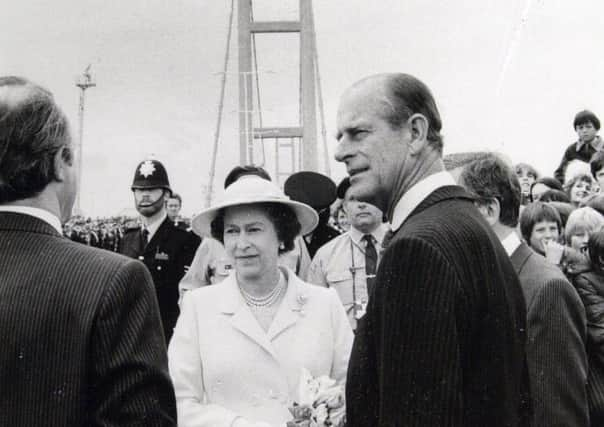Bridge Reality After Century: The Week That Was July 12 to 18, 1984


Once the formalities were over, the Queen and the Duke of Edinburgh’s limousine led a motorcade on the one-and-a-half-mile journey across the bridge, the longest single-span suspension bridge in the world.
It was the culmination of a 100-year-old dream of a bridge across the Humber Estuary as well as ten years of painstaking construction. Council leaders hoped it would bring new vigour to the region.
Advertisement
Hide AdAdvertisement
Hide AdLiberal Party leader David Steel dropped a heavy hint to his party’s Croydon North West by-election candidate Bill Pitt that he should stand down in favour of Social Democrat luminary Shirley Williams. The move came in the wake of the Social Democrats’ success in the Warrington by-election, when Roy Jenkins cut deep into the Labour majority in what was previously seen as a safe seat.
Mr Steel said: “It’s my hope that the Liberals and Social Democrats will agree to fight together as an alliance in whatever way makes victory likely. The pattern of Warrington must now be built on to ensure a Liberal-Social Democrat government at the next election.”
Mr Pitt, who had unsuccessfully fought the seat three times, stood his ground and won with a 24 per cent swing.
A peaceful demonstration through the streets of Dublin showing solidarity with Republican hunger strikers at the Maze Prison in Belfast turned to violence which left 200 people, mostly police officers, in hospital.
Advertisement
Hide AdAdvertisement
Hide AdIRA paramilitary prisoners in the jail (also known as the H-blocks) had begun their fast in March, claiming the British government had failed to fulfil promises made to previous hunger strikers. They were demanding the right to wear their own clothes, to refrain from prison work, freedom to associate and organise their own activities and the restoration of lost remission. In an attempt to pressurise the British authorities, the Irish government threatened to recall its ambassador in London if Kieran Doherty, one of the Maze prisoners, died. Doherty had now passed the 60th day of his fast.
Northern Ireland secretary Humphrey Atkins rejected any direct talks between the government and prisoners.
Unemployment and the decline in countryside services were posing a serious threat to rural life, according to new research. Rural Strategy, released by Rural Voice – an alliance of eight national organisations representing countryside communities – was to be discussed at a conference in York the following week.
It said a new approach was needed to reverse the decline and argued that the special needs of rural areas deserved a fairer share of available resources.
Advertisement
Hide AdAdvertisement
Hide AdProblems to be addressed urgently included poor job prospects, and the fall-off of key services such as schools, shops, Post Offices and transport services. Proposals included the modernisation of village halls to take over the roles of Post Office, doctor’s surgery, library, shop and pharmacy.
In foreign news, Iran’s ruling clergy had put 100 top intellectuals on a list of people to be executed, an exiled opposition group claimed. The Paris-based Unity for Liberty said that leading anti-Shah intellectuals who had helped Ayatollah Khomeini’s rise to power were now on the list and would be shot if found and arrested by security forces.